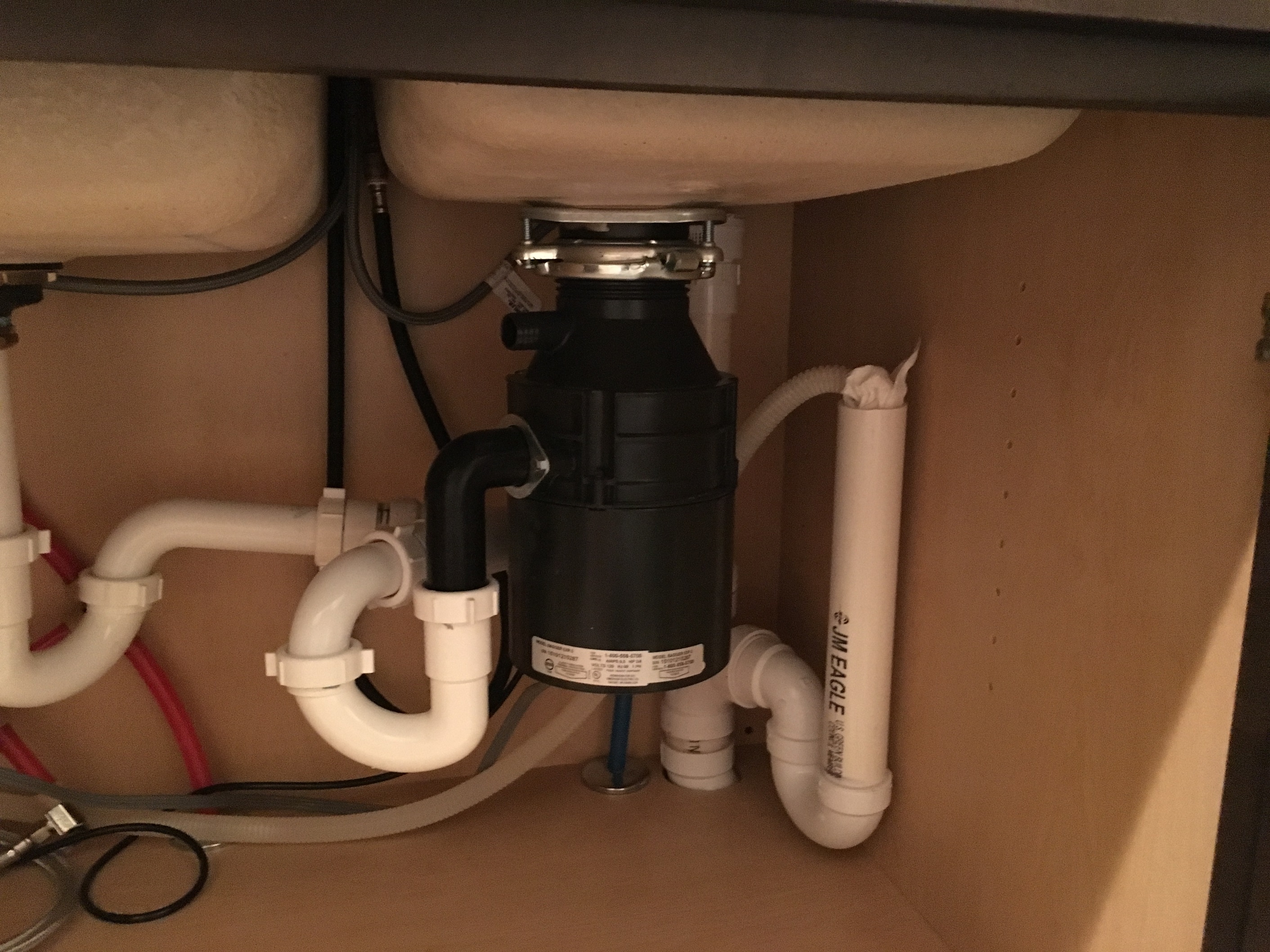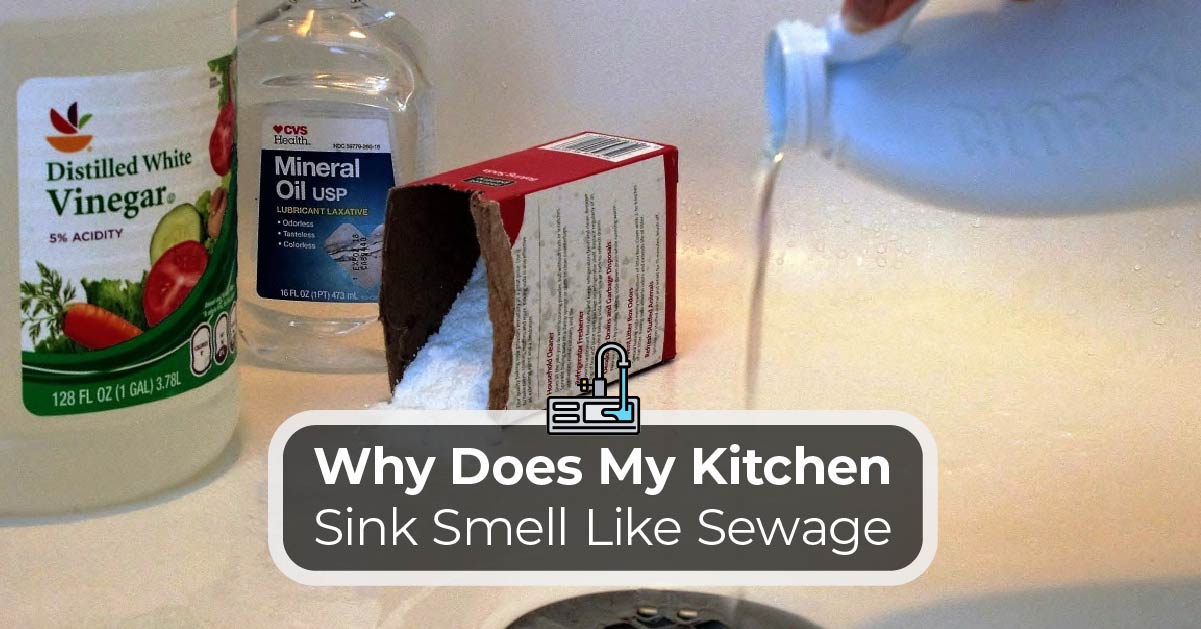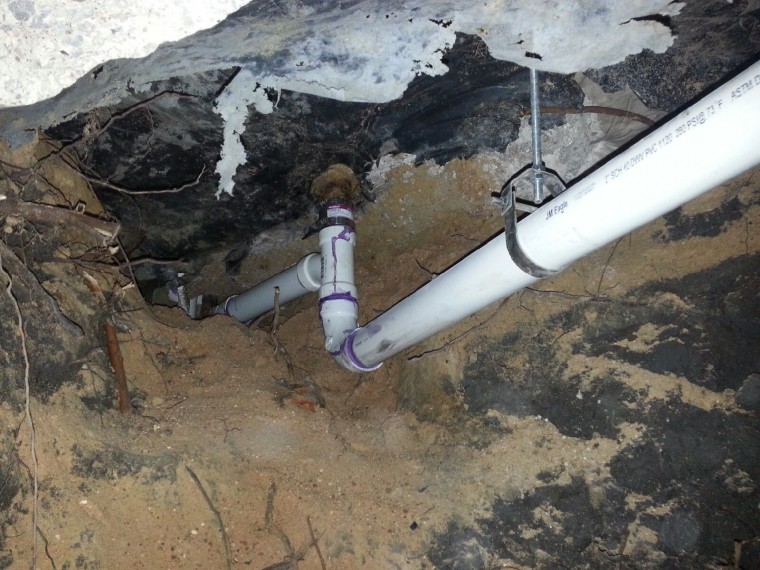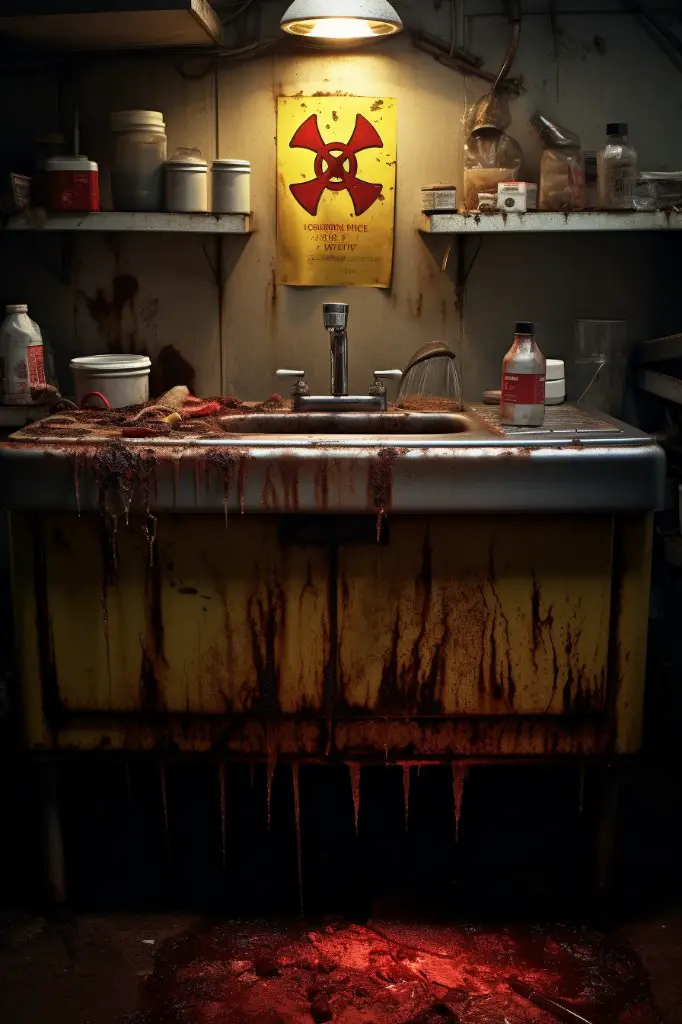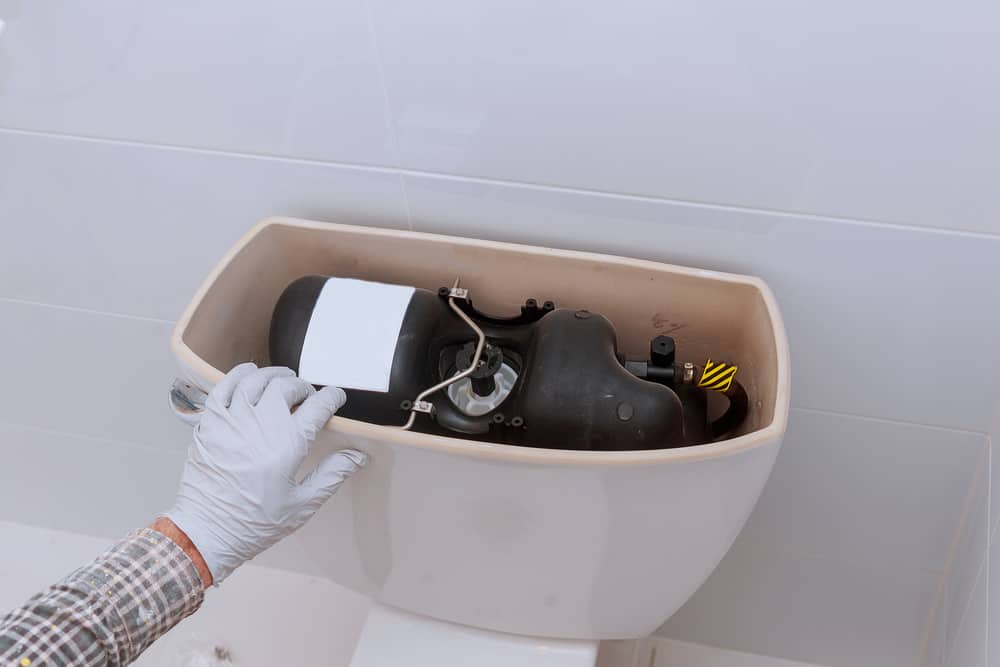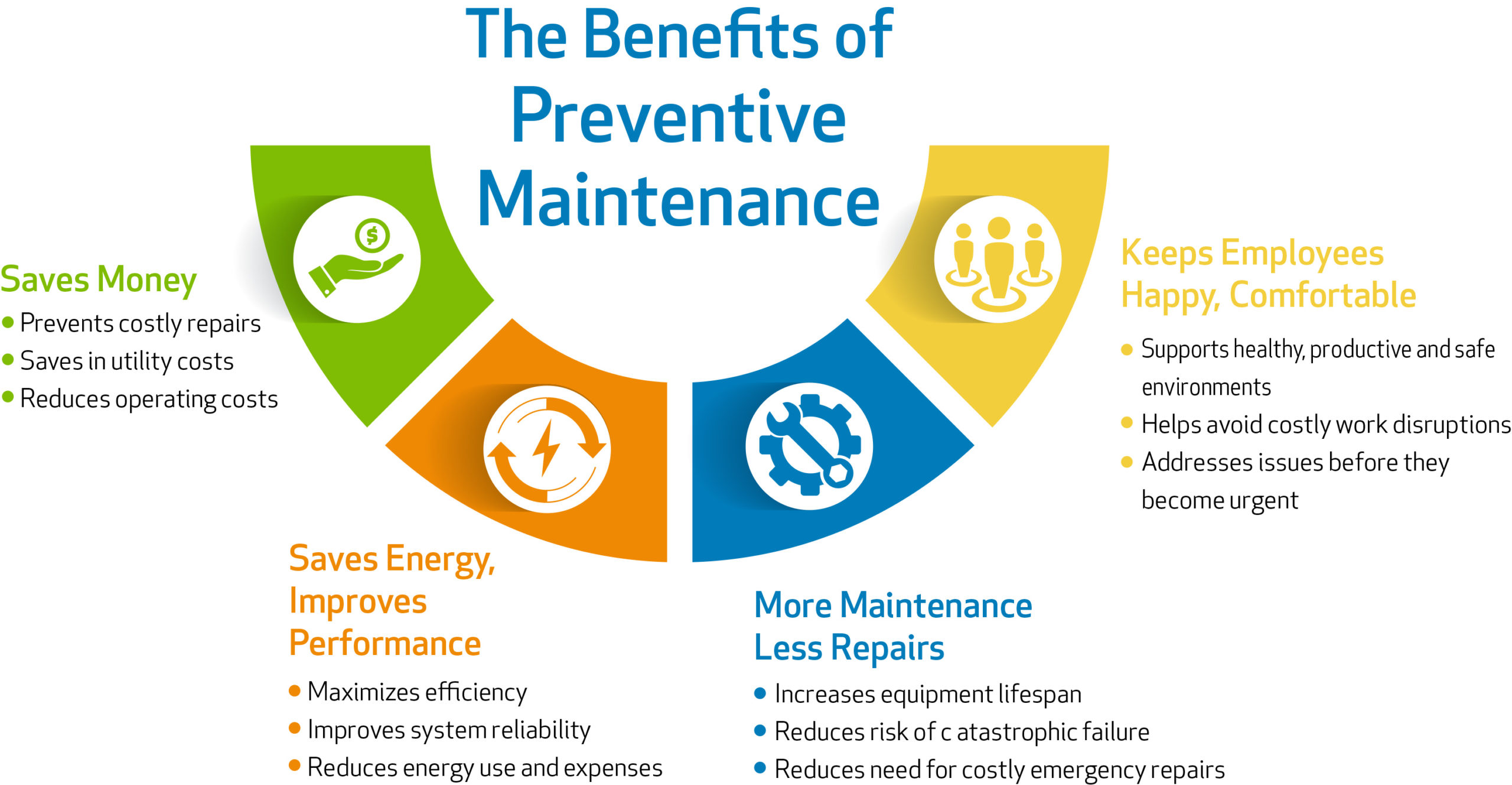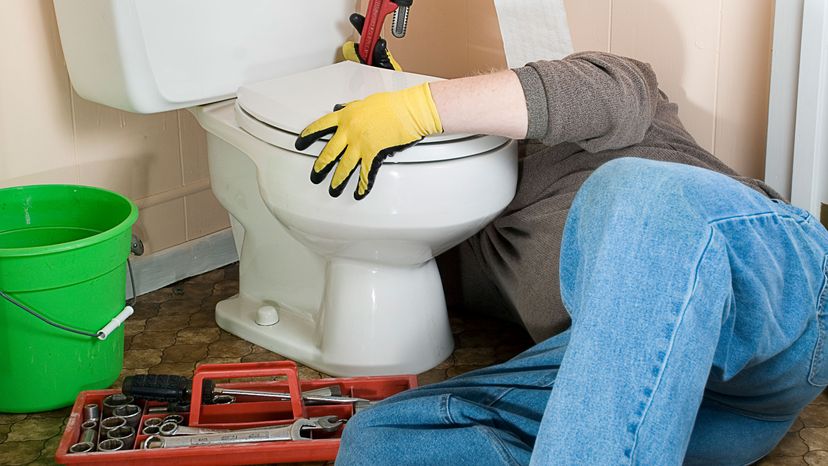If you've noticed a foul odor coming from your kitchen sink, chances are it's caused by sewage. This unpleasant smell can be caused by a variety of factors, including clogged drains, sewer line issues, or even a dry P-trap. It's important to identify the root cause of the smell in order to effectively eliminate it. One of the most common causes of sewage smell in kitchen sinks is a buildup of food particles and grease in the drain. As these materials decompose, they can produce a sulfur-like smell that is often associated with sewage. This can be prevented by regularly cleaning your drain and disposing of food scraps properly. Another possible cause of sewage smell in the kitchen sink is a clogged vent stack. This is a pipe that runs from your drain system to the roof and allows air to flow in and out, preventing pressure buildup in the pipes. A clog in this pipe can trap odors and cause them to enter your home through the sink.1. Causes of Sewage Smell in Kitchen Sink
If you're dealing with a sewage smell in your kitchen sink, there are a few steps you can take to get rid of it. The first step is to clean your drain using a mixture of hot water and baking soda. Simply pour a cup of baking soda down the drain, followed by a cup of hot water. Let it sit for a few minutes before flushing it with hot water. For a more thorough cleaning, you can also use a drain snake or plunger to remove any debris that may be causing the smell. Be sure to wear gloves and protective eyewear when using these tools. If the smell persists, you may need to check the vent stack for any clogs and clear them out. If you're not comfortable doing this yourself, it's best to call a professional plumber for assistance.2. How to Get Rid of Sewage Smell in Kitchen Sink
Aside from clogged drains and vent stacks, there are a few other common reasons for sewage smell in kitchen sinks. One of these is a damaged sewer line. If your drain is connected to a damaged sewer line, it can allow sewage gases to enter your home through the sink. Another possible cause is a dry P-trap. The P-trap is a curved pipe located under your sink that is designed to hold a small amount of water. This water acts as a barrier to prevent sewage gases from entering your home. If the water in the P-trap dries out, it can no longer perform this function, resulting in a sewage smell.3. Common Reasons for Sewage Smell in Kitchen Sink
If you're dealing with a sewage smell in your kitchen sink, there are a few DIY solutions you can try before calling a professional. As mentioned earlier, cleaning your drain and checking for clogs is a good place to start. You can also try pouring a cup of vinegar down the drain and letting it sit for a few minutes before flushing it with hot water. This can help to eliminate any lingering odors and also helps to break down any grease buildup in the pipes. If the smell is coming from a dry P-trap, simply pouring a cup of water down the drain can solve the problem. Be sure to do this regularly to prevent the water from evaporating.4. DIY Solutions for Sewage Smell in Kitchen Sink
If you've tried all of the DIY solutions and the smell persists, it may be time to call a professional plumber for help. They will be able to properly diagnose the issue and provide a long-term solution. A plumber can also perform a sewer line inspection to determine if there are any issues with the main sewer line that may be causing the smell. If necessary, they can also perform repairs or replacements to fix the problem.5. Professional Help for Sewage Smell in Kitchen Sink
The best way to deal with a sewage smell in your kitchen sink is to prevent it from happening in the first place. This can be achieved by following a few simple maintenance tips. Firstly, avoid pouring grease and food scraps down the drain. These can cause clogs and produce unpleasant odors. Instead, dispose of them in the trash or compost bin. Secondly, regularly clean your drain with hot water and baking soda to prevent buildup and keep it smelling fresh. You can also use a drain strainer to catch food particles and prevent them from entering the drain. Lastly, be sure to have your plumbing system inspected and maintained regularly by a professional to catch any issues before they become major problems.6. How to Prevent Sewage Smell in Kitchen Sink
In some cases, the sewage smell in your kitchen sink may be a sign of a more serious issue – a sewage leak. This can be caused by a damaged pipe or sewer line and can result in contaminated water entering your home. Some signs of a sewage leak include slow draining sinks, water backing up into other drains, and wet spots or puddles around your home. If you notice any of these signs, it's important to call a professional plumber immediately to address the issue and prevent further damage.7. Signs of a Sewage Leak in Kitchen Sink
Aside from being unpleasant, a sewage smell in your kitchen sink can also pose health risks. Sewage gases, such as methane and hydrogen sulfide, can be harmful if inhaled in large quantities. They can cause dizziness, headaches, and nausea, and can even be fatal in extreme cases. Furthermore, if the smell is caused by a sewage leak, it can lead to the contamination of your water supply and pose a risk to your health. This is why it's important to address any sewage smell in your kitchen sink as soon as possible.8. Health Risks of Sewage Smell in Kitchen Sink
There are a few common mistakes that homeowners make that can contribute to a sewage smell in their kitchen sink. These include pouring grease and food scraps down the drain, neglecting regular maintenance and cleaning, and flushing inappropriate items down the toilet. It's important to educate yourself on proper plumbing practices to avoid these mistakes and prevent sewage smells in your kitchen sink.9. Common Mistakes that Cause Sewage Smell in Kitchen Sink
Regular maintenance of your plumbing system is crucial in preventing sewage smell in your kitchen sink. This includes cleaning your drains, checking for clogs, and having a professional inspection done at least once a year. By staying on top of maintenance, you can catch any issues early on and prevent them from becoming major problems that can result in costly repairs. It also helps to keep your home clean and smelling fresh. In conclusion, a sewage smell in your kitchen sink is not only unpleasant, but it can also be a sign of a larger issue. By understanding the causes, taking preventative measures and seeking professional help when needed, you can eliminate the smell and ensure the safety of your home and family.10. Importance of Regular Maintenance to Avoid Sewage Smell in Kitchen Sink
The Culprit: A Closer Look at Sewage Smell in Your Kitchen Sink

What is causing that unpleasant smell?
 Your kitchen is the heart of your home. It's where you prepare meals, gather with family and friends, and create memories. But what happens when an unpleasant smell starts to linger in this important space? If you've noticed a sewage smell coming from your kitchen sink, you're not alone. This is a common issue that many homeowners face. But what is causing this smell and how can you get rid of it?
Your kitchen is the heart of your home. It's where you prepare meals, gather with family and friends, and create memories. But what happens when an unpleasant smell starts to linger in this important space? If you've noticed a sewage smell coming from your kitchen sink, you're not alone. This is a common issue that many homeowners face. But what is causing this smell and how can you get rid of it?
The Main Culprit: Clogged Pipes
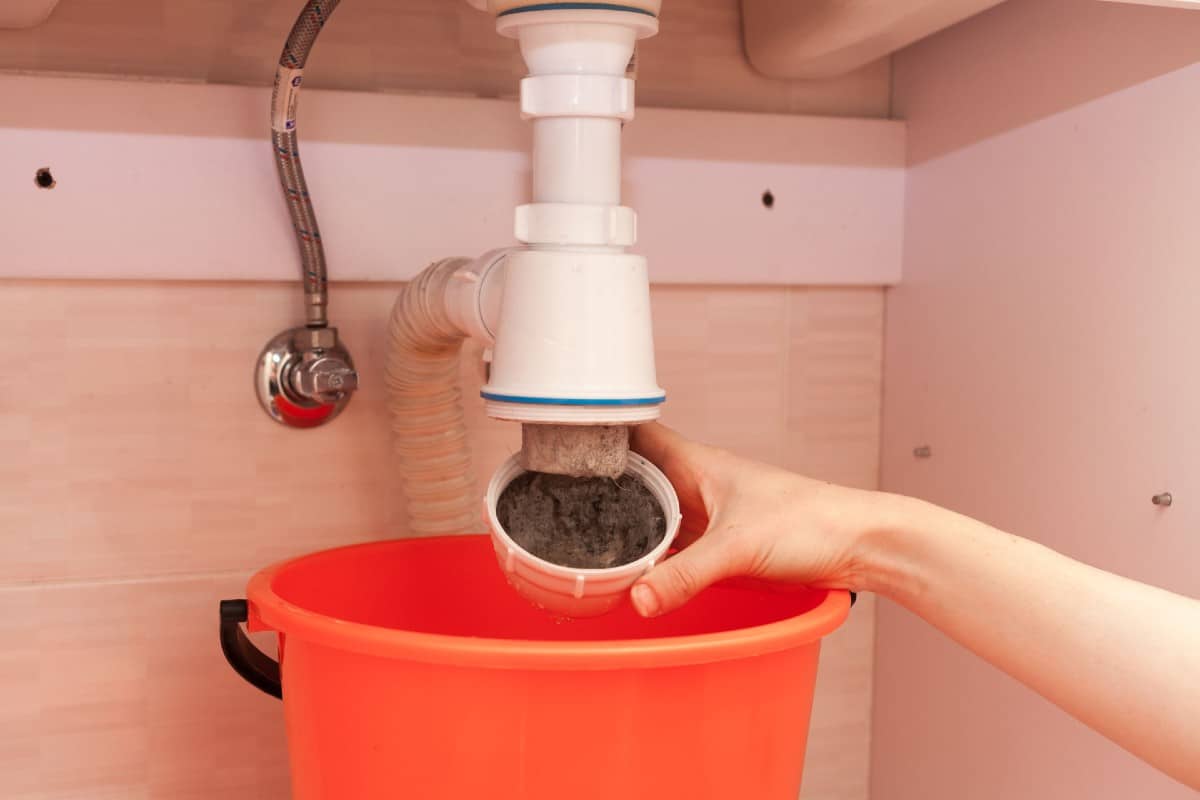 The most likely cause of a sewage smell in your kitchen sink is a clogged pipe. Over time, food scraps, grease, and other debris can build up in your kitchen sink drain, creating a blockage. This blockage can trap bacteria and other microorganisms, which produce the unpleasant smell.
The most likely cause of a sewage smell in your kitchen sink is a clogged pipe. Over time, food scraps, grease, and other debris can build up in your kitchen sink drain, creating a blockage. This blockage can trap bacteria and other microorganisms, which produce the unpleasant smell.
The Solution: Clearing the Clog
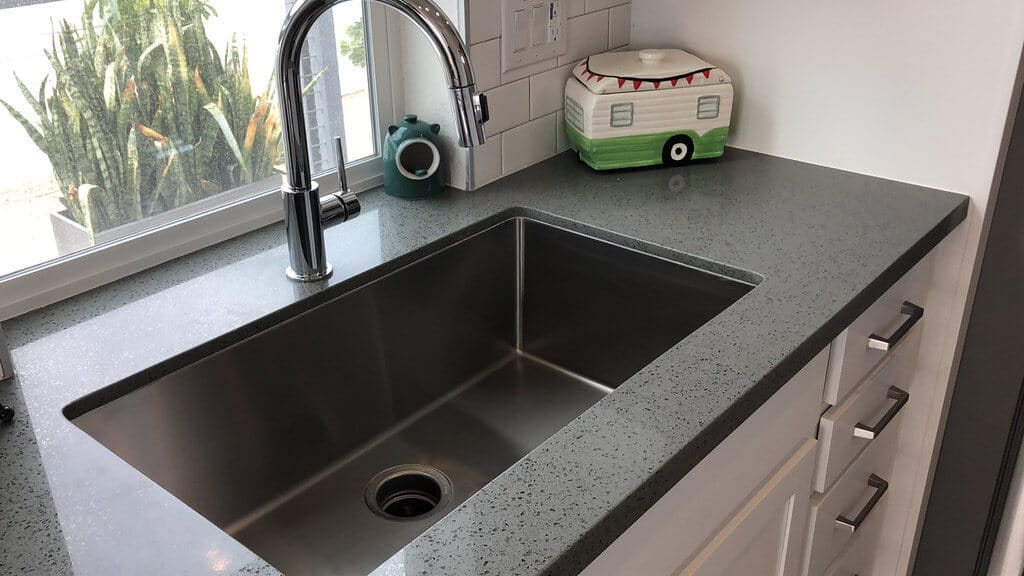 The first step in getting rid of the sewage smell in your kitchen sink is to clear the clog. There are a few methods you can try to do this yourself, such as using a plunger or a homemade mixture of baking soda and vinegar. However, if these methods don't work, it's best to call a professional plumber. They have the tools and expertise to effectively remove the clog and eliminate the smell.
The first step in getting rid of the sewage smell in your kitchen sink is to clear the clog. There are a few methods you can try to do this yourself, such as using a plunger or a homemade mixture of baking soda and vinegar. However, if these methods don't work, it's best to call a professional plumber. They have the tools and expertise to effectively remove the clog and eliminate the smell.
Preventing Future Clogs
 Once the clog is cleared, it's important to take steps to prevent it from happening again. This includes being mindful of what you put down your kitchen sink drain. Avoid pouring grease, coffee grounds, and other food scraps down the drain. You can also use a drain cover or strainer to catch any debris before it goes down the drain.
Once the clog is cleared, it's important to take steps to prevent it from happening again. This includes being mindful of what you put down your kitchen sink drain. Avoid pouring grease, coffee grounds, and other food scraps down the drain. You can also use a drain cover or strainer to catch any debris before it goes down the drain.
Keeping Your Kitchen Fresh and Clean
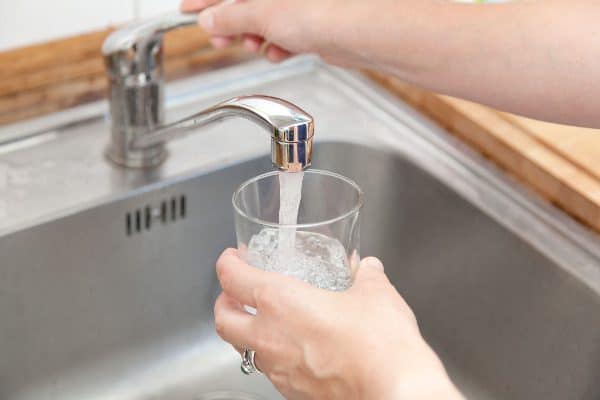 While a clogged pipe may be the main culprit of a sewage smell in your kitchen sink, there are other factors that can contribute to the unpleasant odor. It's important to regularly clean your sink and garbage disposal to prevent bacteria and mold from growing. You can also use natural remedies like lemon juice or essential oils to freshen up your sink and eliminate any remaining odors.
While a clogged pipe may be the main culprit of a sewage smell in your kitchen sink, there are other factors that can contribute to the unpleasant odor. It's important to regularly clean your sink and garbage disposal to prevent bacteria and mold from growing. You can also use natural remedies like lemon juice or essential oils to freshen up your sink and eliminate any remaining odors.
Final Thoughts
:max_bytes(150000):strip_icc()/why-does-my-kitchen-sink-smell-like-sewage-4707719_07_SewerSmells-4d372c293f71488f885015d929ddcd4f.jpg) Don't let a sewage smell in your kitchen sink ruin the atmosphere of your home. By understanding the main cause and taking preventative measures, you can keep your kitchen smelling fresh and clean. If the smell persists despite your efforts, be sure to consult a professional plumber for further assistance. With a little maintenance and attention, your kitchen will continue to be the heart of your home.
Don't let a sewage smell in your kitchen sink ruin the atmosphere of your home. By understanding the main cause and taking preventative measures, you can keep your kitchen smelling fresh and clean. If the smell persists despite your efforts, be sure to consult a professional plumber for further assistance. With a little maintenance and attention, your kitchen will continue to be the heart of your home.



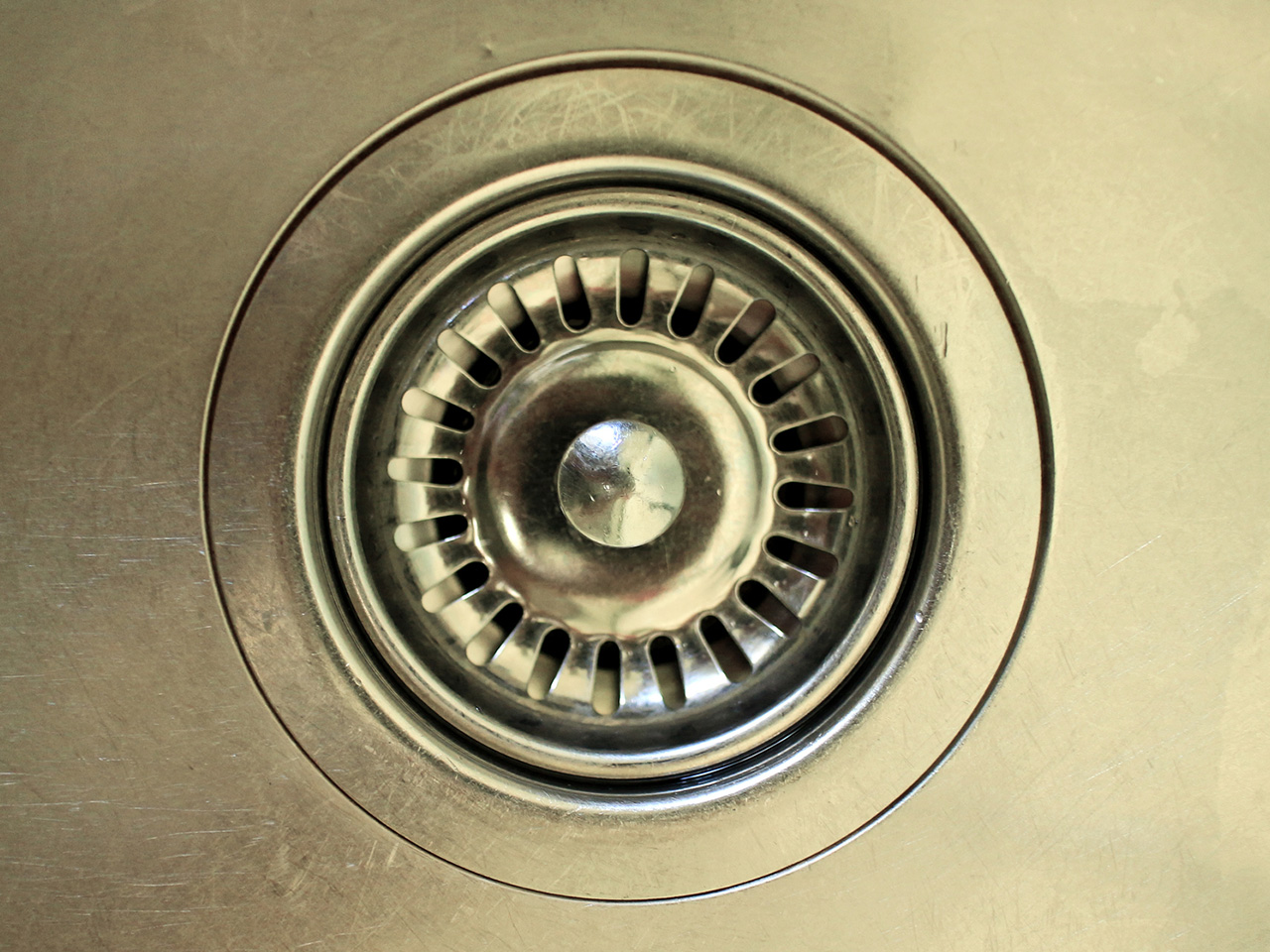
:max_bytes(150000):strip_icc()/sink-pipe-under-wash-basin-119001607-6f28aec4c66944efb7a9a38cb622ab8b.jpg)


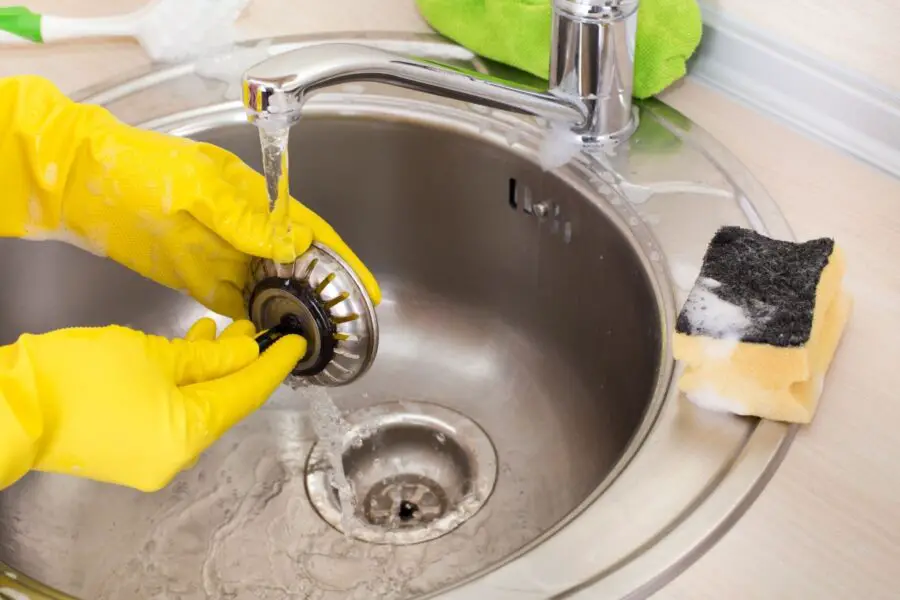












:max_bytes(150000):strip_icc()/why-does-my-kitchen-sink-smell-like-sewage-4707719_01-2030e27351fe4c6c9e1d94145dbbe30a.jpg)







